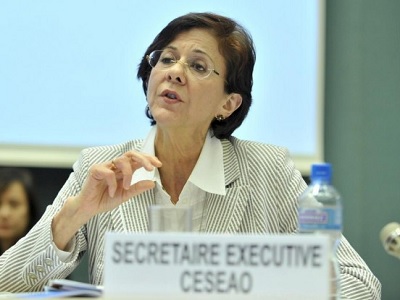
(Update (17/3//17): since this article was first published, ESCWA has been forced to remove the report from its website. It can be viewed/downloaded here: UN ESCWA Israel Apartheid Report.)
A new United Nations report accuses Israel of having established “an apartheid regime that oppresses and dominates the Palestinian people as a whole”.
The publication comes amid renewed debate about whether, through its settlement policy and rejection of Palestinian self-determination, the Israeli government is creating – or even has already created – a de facto “one-state”, which critics warn would constitute a form of apartheid.
It urged governments to “support boycott, divestment and sanctions [BDS] activities and respond positively to calls for such initiatives”.
The report – Israeli Practices towards the Palestinian People and the Question of Apartheid – was commissioned and published by the UN Economic and Social Commission for Western Asia (ESCWA) and launched in Beirut.
John Reynolds, a lecturer in law at the National University of Ireland, Maynooth, told Al Jazeera the report “breaks new ground in the context of the UN’s analysis of the situation in Palestine”.
Israel’s UN envoy Danny Danon issued a statement condemning the report late on Wednesday.
“The attempt to smear and falsely label the only true democracy in the Middle East by creating a false analogy is despicable and constitutes a blatant lie,” he said.
UN spokesman Stephane Dujarric, when asked about the report, said it was published without any prior consultations with the UN Secretariat and its views do not reflect those of the secretary-general.
The report was authored by two critics of Israeli state practice: Virginia Tilley, professor of political science at Southern Illinois University, and Richard Falk, former UN special rapporteur on the situation of human rights in the Palestinian territories, and professor emeritus of international law at Princeton University.
Noting how “the expert consensus [is] that the prohibition of apartheid is universally applicable and was not rendered moot by the collapse of apartheid in South Africa”, the report argues that Israel is “guilty of policies and practices that constitute the crime of apartheid”, a “crime against humanity under customary international law and the Rome Statute of the International Criminal Court”.
The report is a “detailed analysis of Israeli legislation, policies and practices” that highlights how Israel “operates an apartheid regime”, including through “demographic engineering”.
Palestinian citizens of Israel are described as “subjected to oppression on the basis of not being Jewish”, it said.
Palestinians in East Jerusalem similarly experience “discrimination in access to education, healthcare, employment, residency and building rights”, as well as “expulsions and home demolitions”.
Palestinians in the West Bank and Gaza Strip are governed by “military law” alongside Jewish settlers “governed by Israeli civil law”, the report said.
Palestinian refugees and exiles are “prohibited from returning to their homes in Israel and the occupied Palestinian territory” on the basis that they “constitute a ‘demographic threat’ and that their return would alter the demographic character of Israel”.
As well as urging governments to back BDS, the report recommends that the UN and its member states should “revive the Special Committee against Apartheid, and the United Nations Centre Against Apartheid (1976-1991)”, which would then “report authoritatively on Israeli practices and policies relating to the crime of apartheid”.
The report also suggests an advisory opinion be sought from the International Court of Justice “as to whether the means used by Israel to maintain control over the Palestinian people amount to the crime of apartheid”.
David Keane, associate professor in law at Middlesex University, said the new report differs from previous ones on the subject because it “expressly attaches the apartheid label”.
The report could contribute to an already deteriorating relationship between the government of Israeli Prime Minister Benjamin Netanyahu and the United Nations.
“For Palestinians and their allies, the report will help to provide a solid basis for their work,” Nadia Hijab, executive director of al-Shabaka – The Palestinian Policy Network – told Al Jazeera .
Citing the reputation and credibility of the authors, Hijab described the report as “a clear, concise document” whose recommendations are “timely and much needed”.
(Published first by Al Jazeera.)




